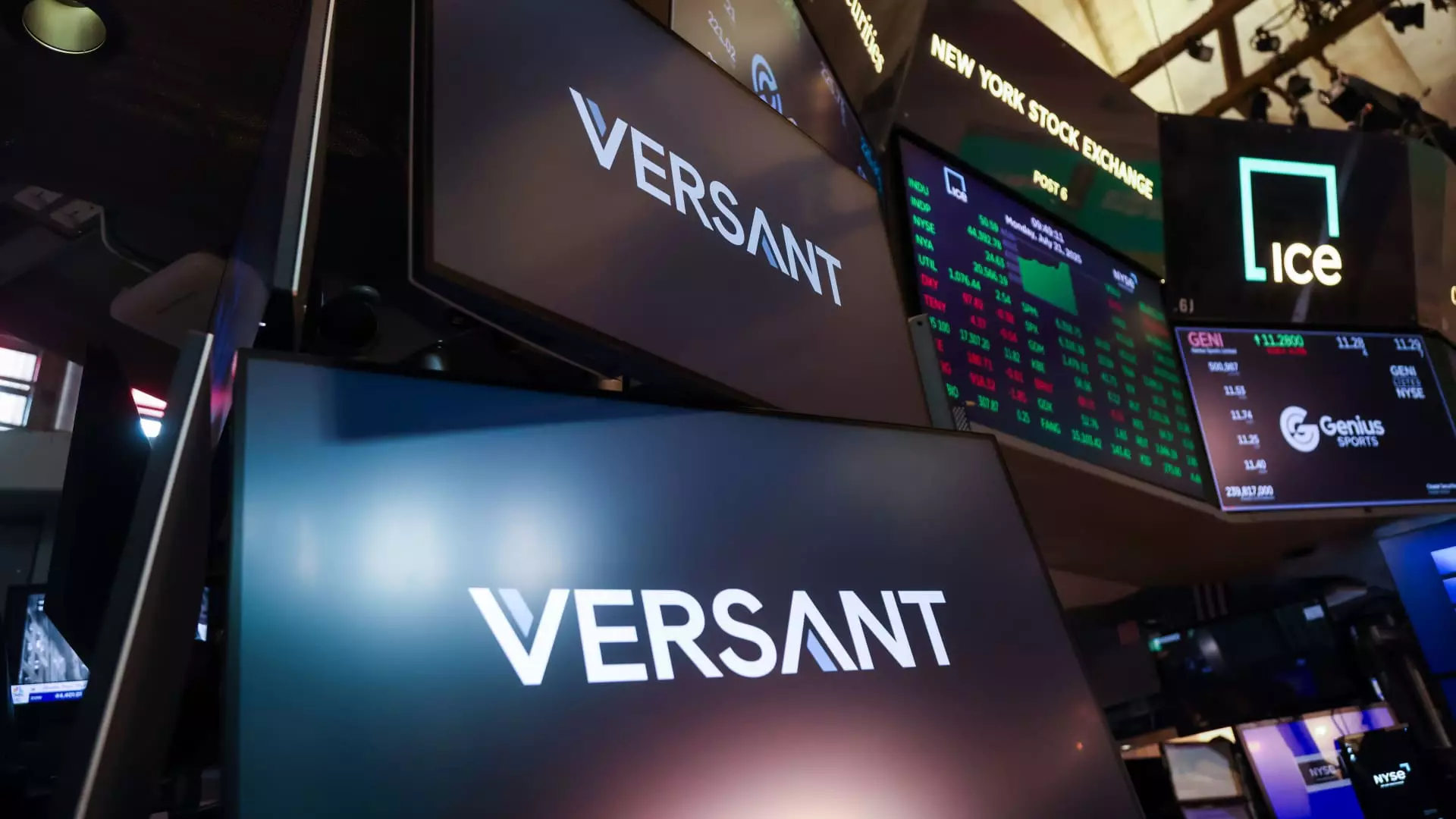The recent announcement of Versant’s board members signals more than just another corporate restructuring; it’s a revealing window into the shifting allegiances and underlying motives in the media landscape. This move, spun out of Comcast’s vast empire, suggests an assault on traditional media control, seemingly aiming to create an independent powerhouse. Yet beneath the surface, it raises serious concerns about transparency, influence, and the consolidation of power amid a fragmented industry. The choices of board members are no accident—they appear strategic, designed to imbue Versant with a mix of industry veterans and influential figures who can steer this new entity toward dominance. But at what cost? The core question lingers: does this autonomy serve the public interest, or is it simply another avenue for corporate elites to entrench their control under the guise of independence?
The Portfolio: From Digital Innovation to Commercial Domination
Versant’s portfolio isn’t just a collection of cable networks—it’s a substantial conglomerate with influential assets spanning traditional television and digital platforms. NBCUniversal’s powerhouse cable channels, like CNBC, MSNBC, and E!, are now expected to operate under this new banner, alongside cutting-edge digital brands such as Fandango and Rotten Tomatoes. The issue here isn’t merely about business strategy but about the potential for content homogenization, where corporate interests prioritize profit over diversity or societal value. The digital assets, often hailed as future-facing ventures, could be susceptible to the same pressures that have historically skewed media towards sensationalism, commercialism, and ideological echo chambers. This spinoff’s success hinges on whether Versant truly seeks to innovate or simply shifts the means of control—leaving consumers vulnerable to more centralized corporate agendas disguised under the veneer of independence.
The Board: Powerhouses or Puppets?
The composition of the new board sends a loud, unsettling message about the intentions behind Versant. Mark Lazarus, carrying credentials as former chair of NBCUniversal Media Group, is positioned as CEO—highlighting continuity rather than radical change. Meanwhile, David Novak’s transition from NBC board to Versant’s chair hints at internal consolidations of influence, amplifying a revolving door phenomenon that seems more about consolidating corporate power than fostering genuine independence. The presence of industry veterans like Rebecca Campbell, Michael Conway, and Gerald Hassell suggests a managerial class deeply embedded within corporate and financial sectors that prioritize shareholder value—often at the expense of media integrity and public service. This collection of board members may be adept at steering Versant’s strategy; however, their backgrounds cast doubt on the entity’s potential to serve democratic interests, risking a new era of media that becomes an echo chamber for corporate narratives rather than a forum for diverse voices.
Corporate Autonomy or Strategic Entrapment?
The notion of an independent media company isn’t inherently problematic; in fact, it can be a step toward healthier, more transparent journalism. But the composition and background of Versant’s leadership foster suspicion. Is this spinoff a genuine effort at independence, or simply a guise for Comcast to shed regulatory scrutiny, mitigate risk, and foster a privatized empire that operates with even fewer checks? Historical patterns suggest that such corporate tactics often lead to tighter control, less journalistic independence, and a focus on consolidating market power rather than serving the public interest. The involvement of former executives from corporate giants like Starbucks, Samsung, and Deloitte underscores a trend: media increasingly becoming a playground for corporate high-fliers and financiers rather than for independent creators or civic-minded institutions. This transformation, cloaked in the language of independence, could ultimately lead to a media landscape more fragmented and controlled than ever—except now, via corporate puppeteering rather than centralized ownership.
The Future of Media in a Corporate Morphology
As Versant prepares to run NBCUniversal’s cable and digital assets, critical eyes should remain vigilant. This isn’t just a corporate reshuffle; it’s a fundamental redefinition of media influence—one driven less by journalistic integrity and more by strategic corporate interests masked as independence. Such moves risk further entrenching corporate dominance, diminishing the diversity of voices, and consolidating the power of a select few elite players who can shape public discourse for their own benefit. The question we, as consumers and citizens, must ask is whether this evolution genuinely enhances media innovation or simply cunningly concentrates control. The future of media, in this context, looks less like a space for public debate and more like an extension of corporate power—an ominous trend that demands skeptical scrutiny and active resistance.

